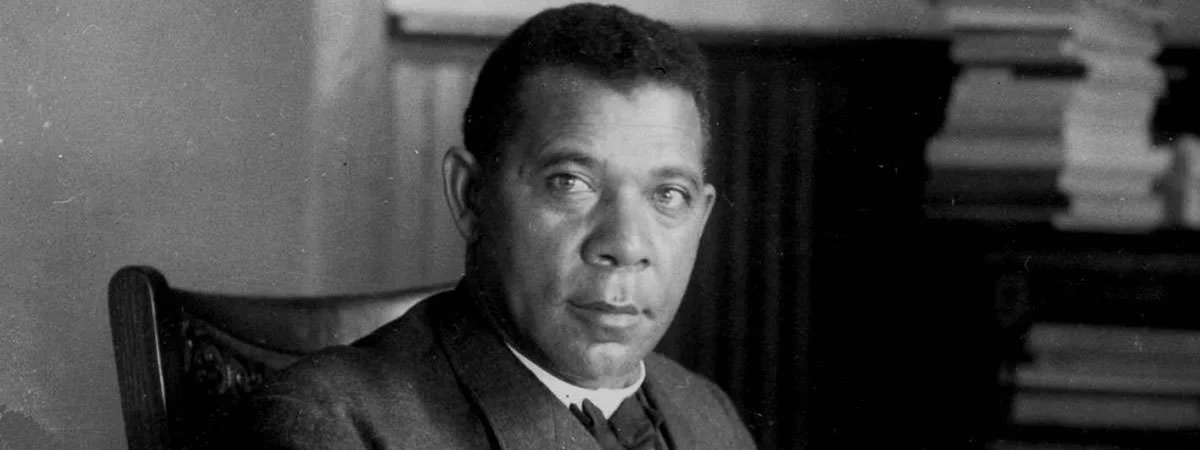Booker Taliaferro Washington was an educator, author and orator who became an influential leader and spokesman of the African American community. Born into slavery, Booker became free after the Emancipation Proclamation. He studied at the Hampton Normal Agricultural Institute in Virginia graduating with honors. Washington then became the leader of the Tuskegee Normal and Industrial Institute in Alabama, with which he had a lifelong association. With his hard-work, he developed Tuskegee Institute into a leading university for the education of African Americans. Washington married three times in his life as his first two wives passed away. He had a daughter from his first wife and two sons from his second wife. After being diagnosed with Bright’s disease, Washington passed away on November 14, 1915 at the age of 59. Know about the family, childhood, education, marriages, career and death of Booker T. Washington through his biography.
Early Life And Family
Booker T. Washington was born into slavery in 1856, in Franklin County, Virginia. The day, month and year of his birth is not known with certainty. His headstone reads the year 1856 as his year of birth. His mother, Jane, was an enslaved cook of James Burroughs, a small planter in Franklin County. The identity of his Booker’s father is not known. He might have been a white man in a neighboring plantation. Booker’s elder brother, John, was also the son of an unknown white man. After Booker’s birth, Jane was married to Washington Ferguson, a slave. The couple had a daughter named Amanda. James, Booker’s younger half-brother, was adopted. During the American Civil War, Booker’s father Washington Ferguson escaped from slavery and settled in Malden, West Virginia.
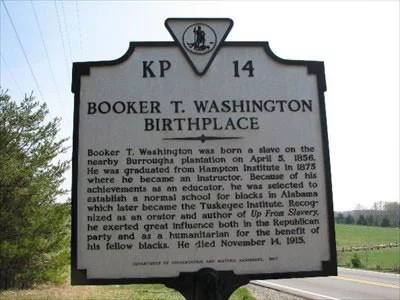
Booker spent his first nine years as a slave on the Burroughs farm. He had a difficult childhood as he, his mother and his brother suffered in the shackles of slavery. On January 1, 1863, President Abraham Lincoln issued the Emancipation Proclamation that legally freed more than 3.5 million enslaved African Americans. In 1865, when Booker was nine, he and his family in Virginia gained freedom under the Emancipation Proclamation as US troops occupied their region. After gaining freedom, Jane took her children to Malden to be reunited with her husband Washington Ferguson.
Education
At the age of nine, Booker worked in a salt furnace packing salt. From the age of ten to twelve, he worked in a coal mine. Booker attended school while working in the mines. Here, he needed to provide a surname. He decided to adopt the name of his step-father as his surname. Later he came to know that his mother had named him Booker Taliaferro at the time of his birth. He honored his mother’s wish and assumed the name Booker Taliaferro Washington, by which he was known for the rest of his life.
In 1872, at the age of sixteen, Booker T. Washington enrolled himself at the Hampton Normal Agricultural Institute in Virginia. The principal of the institute, Samuel Chapman Armstrong, had commanded black troops in the Civil War. He arranged for a white benefactor to pay for Booker’s tuition. Also, Booker worked as a janitor to pay the cost of his room and board.
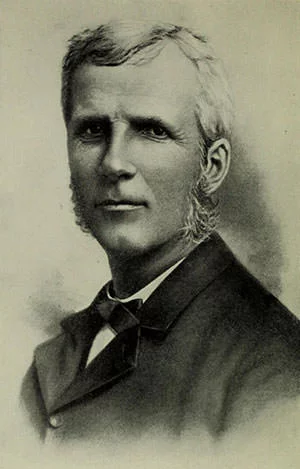
In his autobiography, Booker described his principal Armstrong as “a great man – the noblest, rarest human being it has ever been my privilege to meet.” Moreover, it was from Armstrong that he learned most of his educational philosophy. In 1875, Booker graduated with honors from Hampton. He then went to teach at this old grade school in Malden, Virginia. Later in 1878, he attended the Wayland Seminary in Washington DC, an institution with a curriculum that was entirely academic.
Tuskegee Normal and Industrial Institute
In 1881, Samuel C. Armstrong, who held the hard-working outlook of Booker in high regard, recommended him to become the first leader of the Tuskegee Normal and Industrial Institute in Alabama. At the time of his arrival, the institution had two small converted buildings, no equipment and very little money. Undaunted, Washington began selling the idea of the school, recruiting students and seeking support of local whites. The school opened on July 4, 1881.
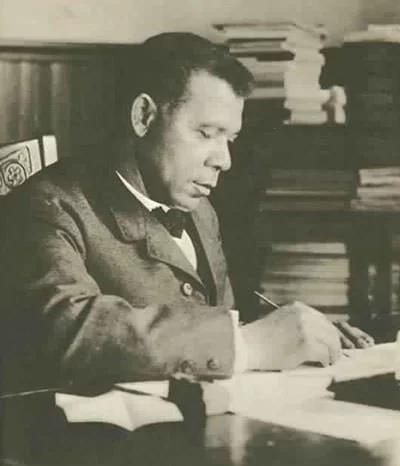
Washington then borrowed money from the treasurer of Hampton Institute and purchased an abandoned plantation on the outskirts of Tuskegee, which became the permanent site of the campus. Under the direction of Washington, the students then built their own school: making bricks, constructing classrooms, barns and outbuildings. By 1888, the Tuskegee Institute had an enrollment of more than 400 and offered training in such skilled trades as carpentry, cabinet-making, printing, shoe-making and tin-smithing. The development of the Tuskegee Institute was a major focus of Washington throughout his life. By the time of his death, the institute had more than 100 well-equipped buildings, around 1,500 students, a faculty of nearly 200 teachers and an endowment of approximately $2 million.
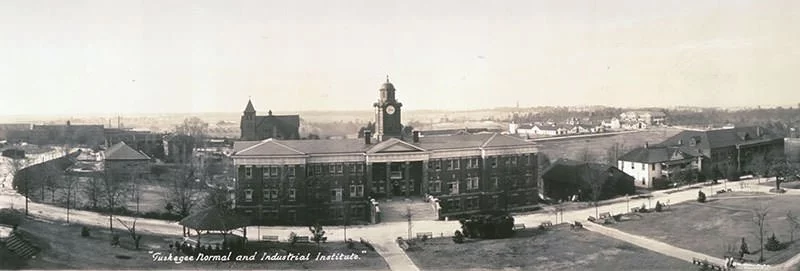
Eventually, Washington went on to raise substantial funds for the establishment and running of hundreds of small community schools and institutions for the higher education of blacks. While doing so, he was able to create a mark for himself as a prominent political figure among African Americans. He also had substantial influence within the networks of white politicians and philanthropists.
Marriages And Children
In 1882, Booker T. Washington married Fannie N. Smith in Rice’s Zion Baptist Church in the Tinkersville section of Malden. She was a student of Washington. A year later, the couple were blessed with a child who was named Portia. On May 4, 1884, Fannie Smith Washington died suddenly of unknown causes.
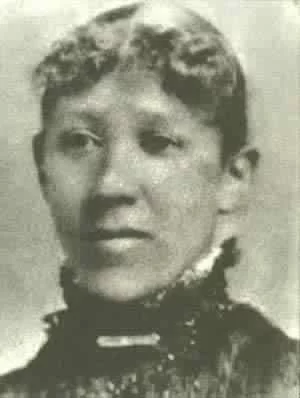
A couple of years later, on August 11, 1886, in Athens, Ohio, Booker T. Washington married Olivia A. Davidson. She was a free woman of color who had helped Washington develop the Tuskegee Institute. Olivia and Booker had two sons, Booker T. Washington Jr., born on May 29, 1887; and Ernest Davidson Washington, born on February 6, 1889. On May 9, 1889, shortly after the birth of her second child, Olivia A. Davidson died due to tuberculosis.
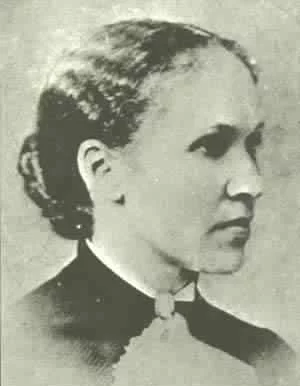
On October 10, 1892, Booker T. Washington married Margaret Murray in Tuskegee. The couple didn’t have any children but Murray helped raise the three children of Washington from his previous marriages. Murray outlived Washington and died on June 4, 1925. Murray had come to Tuskegee as lady principal in 1889 and directed the programs for female students. She went on to play a prominent role in the women’s liberation movement and in improving the educational system for African Americans. In 1972, she was inducted into Alabama’s Women Hall of Fame.
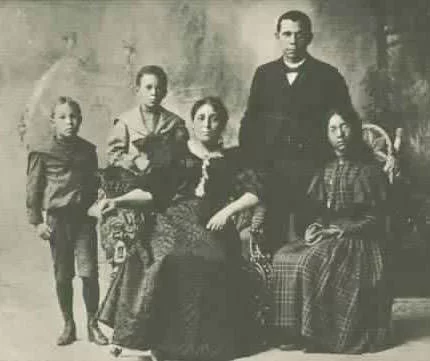
Later Career
On September 18, 1895, Washington gave a speech which became the basis for the Atlanta Compromise, an agreement that Southern blacks would work and submit to white political rule, while Southern whites would guarantee that blacks would receive basic education and due process in law. Although, through the Atlanta Compromise, Washington was able to secure basic educational rights for the African Americans, his tactics were severely criticized by prominent African American leader W. E. B. Du Bois to be too accommodating to the demands of the white community.
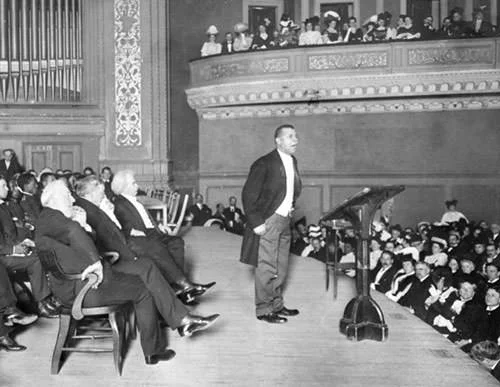
Washington received honorary degrees from Harvard University in1896 and Dartmouth College in1901. In 1900, he organized the Negro Exhibition at the Exposition Universelle in Paris along with Du Bois. The motive of the exhibition was to demonstrate the positive contributions of African Americans to US society. The same year, Washington also founded the National Negro Business League (NNBL). The organization actively worked towards promoting the interests of African American businesses.
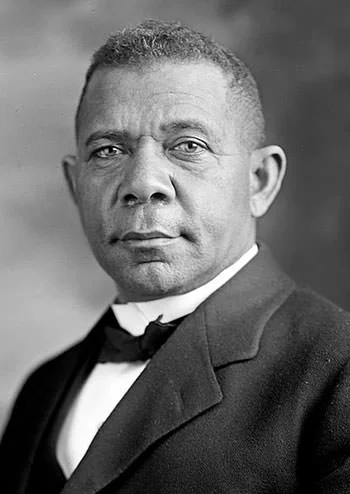
In the period from 1900 to 1912, Washington published five books with the help of ghostwriters Timothy Fortune, Max Bennett Thrasher and Robert E. Park. His second autobiography Up from Slavery went on to become a bestseller and it had a major effect on the African American community. Due to the success of the book, in October 1901, President Theodore Roosevelt invited Washington to dine with him and his family at the White House. Washington was the first African American to be invited there by a president.
Death
Washington continued as the principal of Tuskegee until the end of his days. In 1915, his health deteriorated rapidly and he collapsed while in New York. Washington was ultimately diagnosed with Bright’s disease by two different doctors, who told him that he had only a few days left. As he wanted to spend his dying days in Tuskegee, Washington traveled and arrived there on November 14, 1915. A few hours later, he passed away at the age of 59. His funeral on November 17, 1915 was held in the Tuskegee Institute Chapel and attended by around 8,000 people. Booker T. Washington was buried within the campus of Tuskegee University.
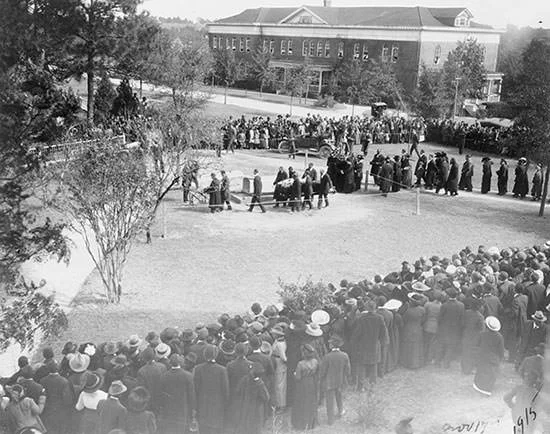
The reason for the death of Washington is considered to be congestive heart failure that worsened due to overworking. In 2006, an official examination of his medical records was undertaken which indicated the reason to be hypertension coupled with extremely abnormal blood pressure.

